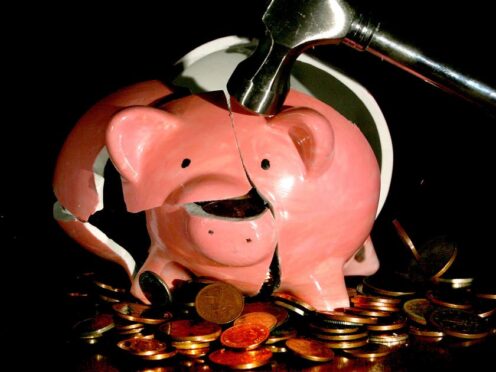
Nearly three in 10 (28%) UK adults were not coping financially, or finding it difficult to cope, in January 2024, Financial Conduct Authority (FCA) research indicates.
The regulator said people who are more likely to be among this group include:
– 60% of those in households with an income of under £15,000 a year – which is nearly four times the proportion of adults (16%) with a household income of £50,000-plus.

– 55% of those who are unemployed and 57% of others who are not in work, such as students, the long-term sick or disabled, those looking after the home or family or full-time carers.
– 55% of single adults with financially dependent children (those who are not married, in a civil partnership, or otherwise living as a couple).
– 50% of renters, which is over twice the proportion (24%) of mortgage holders and nearly five times the proportion (11%) owning their home outright.
– 39% of adults from an ethnic minority background.
– 39% of 35 to 44-year-olds, which is around four times the proportion (10%) of those aged 75-plus.
– 30% of women, compared with 25% of men.
The report also looked at the percentages of adults who reported not coping or finding it difficult to cope financially in January 2024 by nation or region.
It said: “The results for the English regions reveal something of a North/South divide. Results are worst in the North East… The region with the lowest proportion of adults not coping financially or finding it difficult to cope was the East of England.”
Here are the percentages:
– Northern Ireland, 34%
– Wales, 31%
– England, 28%
– Scotland, 22%
– North East, 40%
– West Midlands, 37%
– Yorkshire and the Humber, 32%
– North West, 30%
– East Midlands, 29%
– South West, 26%
– London, 24%
– South East, 24%
– East of England, 21%

Enjoy the convenience of having The Sunday Post delivered as a digital ePaper straight to your smartphone, tablet or computer.
Subscribe for only £5.49 a month and enjoy all the benefits of the printed paper as a digital replica.
Subscribe